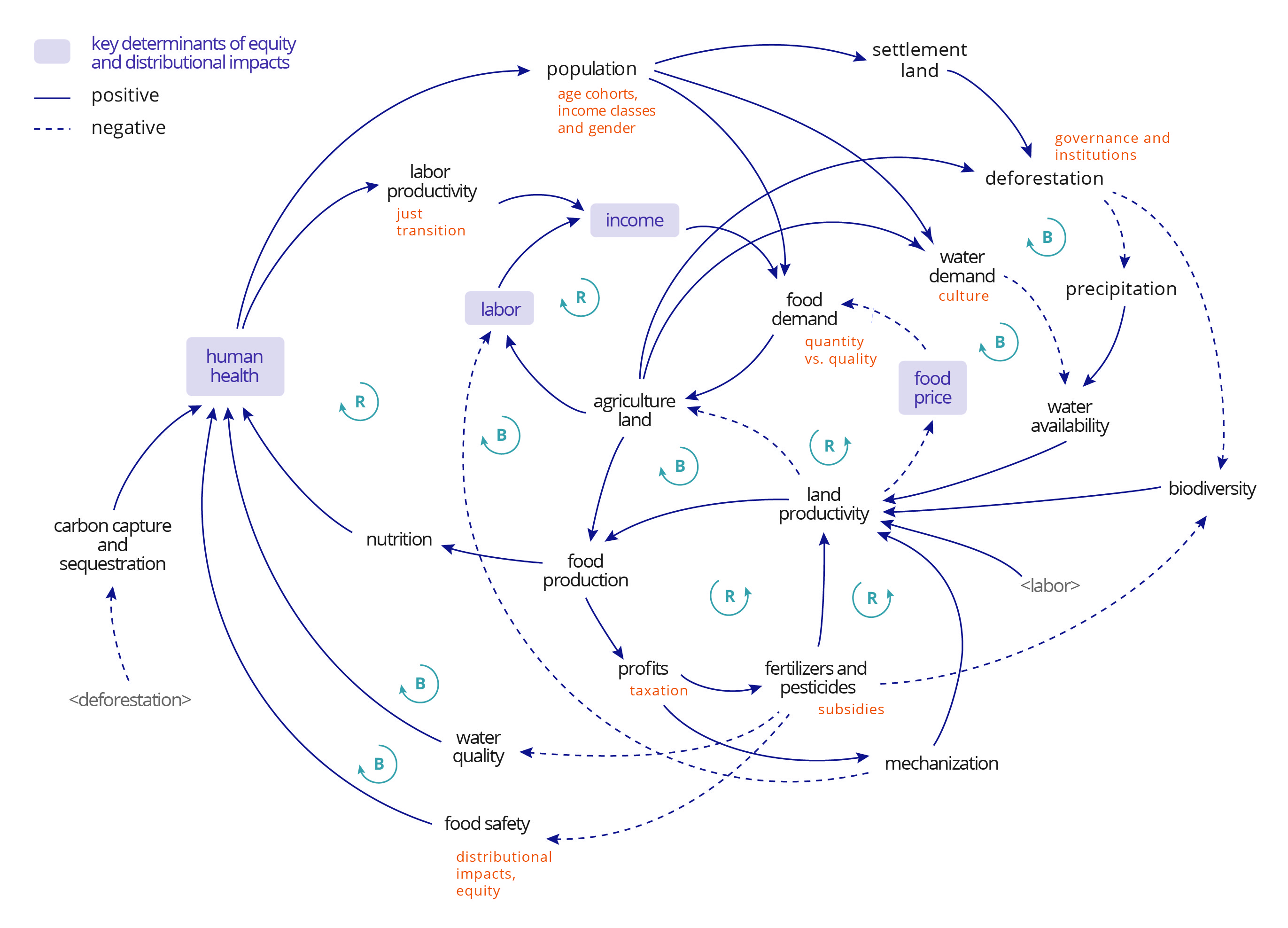

TEEBAgriFood es un enfoque sistémico para aunar las distintas disciplinas y perspectivas relacionadas con la agricultura y la alimentación, un marco de evaluación que respalda la evaluación integral, universal e inclusiva de los sistemas ecoagroalimentarios, un conjunto de metodologías y herramientas para la medición de las externalidades positivas y negativas, y una teoría del cambio para ayudar a integrar TEEBAgriFood en el amplio panorama de plataformas e iniciativas, como los ODS, que abordan estas complejas cuestiones. Por lo tanto, desempeña un papel crucial en la transformación de los sistemas alimentarios y agrícolas.
TEEB tiene tres principios básicos:
- Reconocer que las externalidades del comportamiento humano sobre los ecosistemas, los paisajes, las especies y otros aspectos de la biodiversidad es una característica de todas las sociedades y comunidades humanas.
- Valorar estas externalidades en términos económicos suele ser útil para los responsables políticos y las partes interesadas del sector empresarial a la hora de tomar decisiones.
- La gestión de las externalidades implica la introducción de mecanismos que incorporen los valores de los ecosistemas a la toma de decisiones mediante incentivos y señales de precios.
Dedicado a descubrir los costes y beneficios ocultos, es decir, las externalidades tanto negativas como positivas de la agricultura y la alimentación, los beneficiarios de TEEBAgriFood son diversos, desde los consumidores hasta los pequeños agricultores. Las partes interesadas son los responsables políticos, los investigadores, los agricultores, los consumidores, las empresas, los inversores y las comunidades de financiación y donantes.